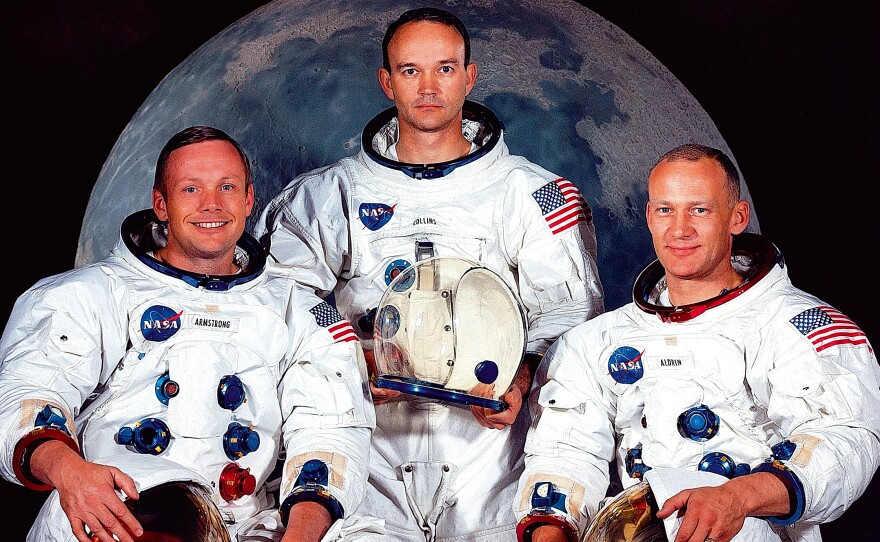Former astronaut Neil Armstrong, known for his words, "That's one small step for man, one giant leap for mankind," has died. The first man ever to walk on the moon was 82.
Update at 5:15 p.m. ET:
Armstrong's family has released a statement, saying he died following cardiovascular procedures. NASA published it here. They say, "Armstrong was also a reluctant American hero who always believed he was just doing his job."
They had this request: "Honor his example of service, accomplishment and modesty, and the next time you walk outside on a clear night and see the moon smiling down at you, think of Neil Armstrong and give him a wink."
Former astronaut Edwin "Buzz" Aldrin mourned him in a statement, saying, "I know I am joined by millions of others in mourning the passing of a true American hero and the best pilot I ever knew. My friend Neil took the small step but giant leap that changed the world and will forever be remembered as a landmark moment in human history."
Our original post:
Armstrong had cardiac bypass surgery earlier this month, as Mark wrote, and at the time, his wife said he was "doing great." Former astronaut Edwin "Buzz" Aldrin, who accompanied Armstrong on the historic spaceflight, had tweeted that he planned on joining Armstrong on the 50th anniversary of the famous Apollo 11 mission in 2019.
Today, his family said he died following cardiovascular procedures, according to The Associated Press. Nothing further is yet known about Armstrong's condition over the past few weeks or where he was convalescing.
In July 1969, Armstrong commanded the Apollo team, which included Aldrin and pilot Michael Collins, that went to the moon. Armstrong and Aldrin descended to the lunar surface, landing in the dry Sea of Tranquility. Their lunar module touched down with about 30 seconds of fuel remaining.
Armstrong radioed their safe arrival back to NASA. "Houston, Tranquility Base here — the Eagle has landed," he said. Seven hours later, he stepped out of the spacecraft and down onto the moon itself, speaking his historic words.
The pair spent about three hours walking on the moon.
In December 2010, Armstrong sent a letter to NPR's Robert Krulwich, who was musing on how far Armstrong and Aldrin actually walked when they arrived on the moon's surface. Robert had discovered the astronauts covered a distance of about 90 yards, something he at first considered modest. To his surprise, Armstrong emailed him a lengthy explanation about the stroll.
In short, Armstrong reminded people, the astronauts had to adjust to very low gravity and were walking in temperatures of 200 degrees Fahrenheit — and they didn't know how long the coolant in their suit would last. Robert posted Armstrong's full remarks.
The communication was surprising, as Armstrong was usually a private man. However, in late 2011, to a the head of an Australian association of accountants. (Armstrong's father was a government auditor). NPR's Robert Siegel highlighted the conversation for All Things Considered in May.
Copyright 2020 NPR. To see more, visit https://www.npr.org. 9(MDA1MjI2NzUxMDEyNzQyMTY5MjQ2YzkwNA004))












